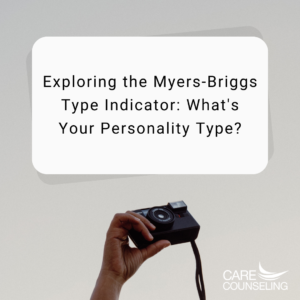Exploring the Myers-Briggs Type Indicator
 The human personality is a fascinating tapestry of traits, tendencies, and preferences that shape the way we perceive and interact with the world. Understanding these nuances can be a valuable tool for self-discovery and personal growth. The Myers-Briggs Type Indicator (MBTI) is one such tool that offers insight into your personality by categorizing you into one of 16 distinct personality types.
The human personality is a fascinating tapestry of traits, tendencies, and preferences that shape the way we perceive and interact with the world. Understanding these nuances can be a valuable tool for self-discovery and personal growth. The Myers-Briggs Type Indicator (MBTI) is one such tool that offers insight into your personality by categorizing you into one of 16 distinct personality types.
What is the Myers-Briggs Type Indicator (MBTI)?
The Myers-Briggs Type Indicator is a widely used personality assessment tool that was developed by Katharine Cook Briggs and her daughter, Isabel Briggs Myers, during the mid-20th century. It’s based on Carl Jung’s theory of personality types, which suggests that there are inherent, fundamental differences in the way people perceive the world and make decisions.
The MBTI assesses individuals on four dichotomies, resulting in 16 possible personality types. These dichotomies are:
- Extraversion (E) vs. Introversion (I): Determines whether you gain energy from being around others (extraversion) or from spending time alone (introversion).
- Sensing (S) vs. Intuition (N): Reflects how you gather information—either through your five senses (sensing) or by relying on intuition and patterns (intuition).
- Thinking (T) vs. Feeling (F): Reveals how you make decisions—through logic and analysis (thinking) or by considering emotions and values (feeling).
- Judging (J) vs. Perceiving (P): Determines how you approach life—whether you prefer structure, planning, and closure (judging) or are more adaptable and open-ended (perceiving).
The 16 Personality Types
Based on your responses to MBTI questions, you are assigned one of 16 personality types, each with its unique combination of the four dichotomies. Here’s a brief overview of each personality type:
- ISTJ – The Inspector: Practical, responsible, and detail-oriented.
- ISFJ – The Protector: Compassionate, loyal, and supportive.
- INFJ – The Counselor: Insightful, creative, and empathetic.
- INTJ – The Mastermind: Visionary, analytical, and independent.
- ISTP – The Craftsman: Resourceful, adaptable, and action-oriented.
- ISFP – The Composer: Artistic, sensitive, and harmonious.
- INFP – The Healer: Idealistic, imaginative, and caring.
- INTP – The Architect: Analytical, curious, and innovative.
- ESTP – The Dynamo: Energetic, pragmatic, and spontaneous.
- ESFP – The Performer: Fun-loving, sociable, and generous.
- ENFP – The Champion: Enthusiastic, expressive, and creative.
- ENTP – The Visionary: Inventive, resourceful, and witty.
- ESTJ – The Supervisor: Organized, responsible, and decisive.
- ESFJ – The Provider: Caring, sociable, and dependable.
- ENFJ – The Teacher: Charismatic, inspiring, and compassionate.
- ENTJ – The Commander: Confident, strategic, and goal-oriented.
Benefits of Understanding Your Personality Type
- Self-Awareness: Knowing your personality type can help you gain deeper insights into your strengths, weaknesses, and motivations.
- Improved Communication: Understanding your personality type and that of others can enhance your communication skills and interpersonal relationships.
- Career Guidance: Your MBTI type can provide guidance on career choices that align with your natural inclinations and preferences.
- Conflict Resolution: Recognizing personality differences can aid in resolving conflicts and promoting harmony in personal and professional relationships.
- Personal Growth: The MBTI can serve as a roadmap for personal growth and development, helping you embrace your unique qualities and work on areas that need improvement.
Critiques and Considerations
While the MBTI can be a valuable tool, it’s essential to approach it with some critical considerations:
- Simplification: The MBTI categorizes individuals into 16 types, which can oversimplify the complexity of human personality.
- Lack of Scientific Consensus: Some critics argue that the MBTI lacks empirical evidence and is not supported by modern psychological research.
- Fluidity: Personality traits can be fluid and change over time, challenging the idea of a fixed personality type.
- Individual Differences: People within the same personality type can have significant individual variations.
Exploring the Myers-Briggs Type Indicator can be a fascinating journey of self-discovery and understanding. While it’s important to recognize its limitations, the MBTI can offer valuable insights into your personality and how you relate to others. Remember that your personality type is just one facet of who you are, and it should be embraced as a tool for growth, self-compassion, and improved relationships.



























